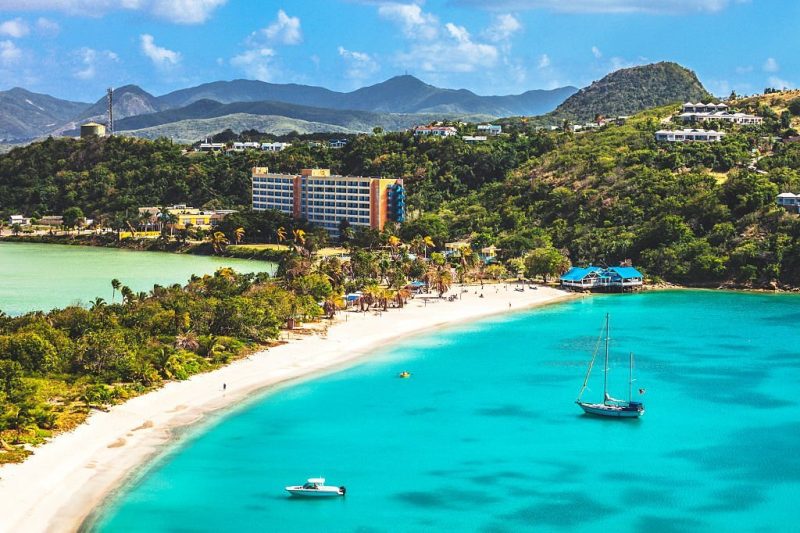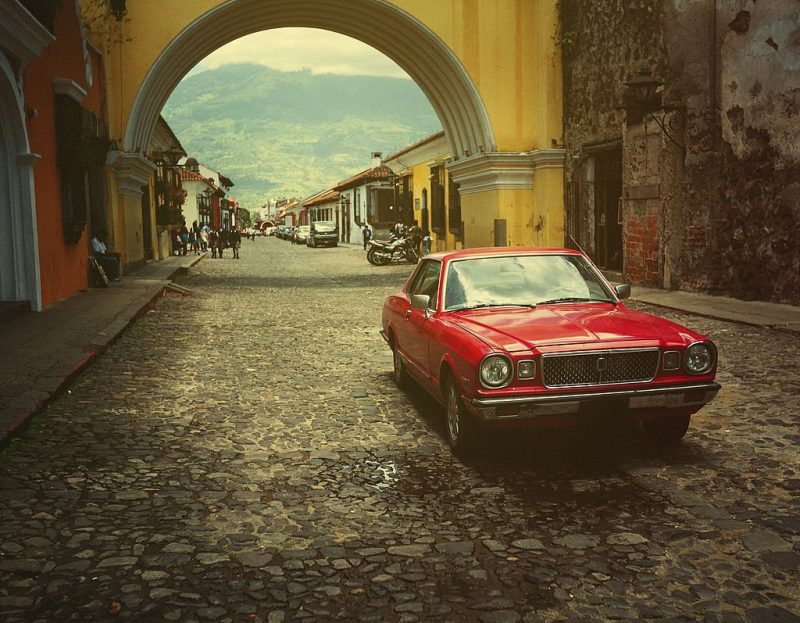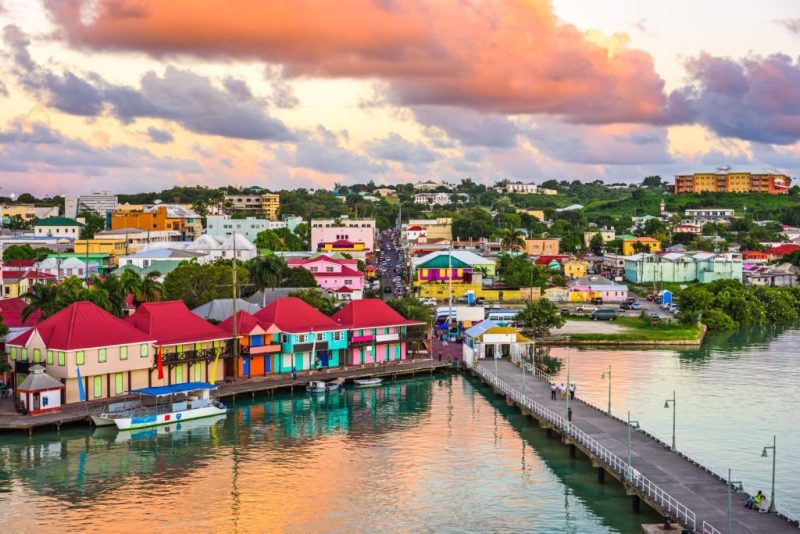Do you intend to relocate to Antigua and Barbuda? It’s normal to be curious about the cost of living while moving somewhere new. The cost of living in Antigua and Barbuda varies based on where you live, how you live, and how much money you spend.
Recent estimates indicate that Antigua and Barbuda generally have higher living expenses than neighboring Caribbean nations. Nevertheless, it is still feasible to live comfortably without becoming bankrupt. With some preparation and budgeting, it is possible to control the expense of housing, food, transportation, and entertainment. It’s vital to bear in mind that changes in the exchange rate can also have an impact on living expenses, so it’s a good idea to monitor it when making travel plans.
Overview of Antigua
Beautiful Antigua is an island in the Caribbean Sea. It is a part of Antigua and Barbuda and is well-known for its gorgeous beaches, clean waters, and rich heritage. There are about 100,000 people living on the island, which is about 108 square miles in area.
Antigua’s coastline, which is lined with more than 365 beaches, is one of its most remarkable characteristics. In other words, you could go to a different beach every day of the year! The most well-known beaches include Half Moon Bay, Jolly Beach, and Dickenson Bay.
In addition to its beaches, Antigua is the location of several historic sites and landmarks. Nelson’s Dockyard, a former British naval facility, and current UNESCO World Heritage Site, is one of the most well-known. The Shirley Heights Lookout, Fort James, and Betty’s Hope Plantation are among further noteworthy landmarks.
Antigua has a wide variety of culinary alternatives that reflect its cultural influences. Fresh fish and typical Caribbean fares like jerk chicken and rice and peas are both available. There are numerous international eateries and fast-food franchises on the island.
In general, Antigua has a special combination of nature, culture, and history to offer visitors from all walks of life. Whether you want to unwind on the beach, learn more about the island’s past, or enjoy some exquisite food, Antigua has something to offer everyone.
Housing Costs

Housing costs have a big role in determining living expenses in Antigua. There are two home options: renting and buying.
Renting
The price varies by location if you’re looking to rent an apartment in Antigua. A one-bedroom apartment in the center of the city may cost around $1,000 per month, while a three-bedroom apartment may cost as much as $2,000 per month. The price drops dramatically if you decide to reside outside of the city core. One-bedroom apartments typically cost around $740 per month, while three-bedroom apartments can cost up to $1,500 per month.
Utilities like water, electricity, and internet are usually not included in the rent and could increase your monthly expenses by an additional $200 to $300. One or two months’ worth of rent serve as security deposits, and some landlords may also want a guarantor or proof of income.
If your budget is tight, you may consider renting an apartment with a roommate to split the bill. The fact that some apartments are furnished while others are not should be noted as well. In general, furnished flats cost more than those that aren’t.
Buying
The cost of purchasing a house in Antigua is a large investment and is based on the location, size, and state of the property. The price of a property in Antigua ranges from $300,000 on average to $1 million or more for luxury homes.
It’s crucial to know your local real estate market well and to work with a trustworthy real estate agent if you’re thinking about purchasing a home. Additional expenses like property taxes, insurance, and upkeep should also be taken into account.
In addition to the purchase price, there are additional charges to take into consideration, such as maintenance costs, legal fees, and property taxes. Property taxes are generally around 0.25% of the property value per year, while legal fees can range from $2,000 to $5,000. Depending on the size and condition of the property, maintenance costs will vary, but it’s generally advised to budget about 1% of the annual property value for repairs and maintenance.
In general, Antigua’s housing costs might be rather high, however, there are options to suit various spending plans and lifestyles. It’s crucial to conduct research before deciding whether to buy or rent.
Transportation Costs

Public and private transportation are the two primary means of getting about Antigua. Let’s examine each one more closely.
Public Transportation
Buses make up the majority of the island’s public transportation system in Antigua and are affordable. An average local bus fare is $1 for a one-way trip. But be aware that the buses do not always run on time and might be crowded. Private transportation can be a better option if you’re seeking a more luxurious and dependable solution.
Private Transportation
Taxis, rented cars, and private shuttles are all forms of private transportation in Antigua. Taxis are easily accessible and can be called upon from a taxi stand or flagged down on the street. Depending on the distance, taxi fares might range from $20 to $30, but you should budget this amount for a trip from the airport to your hotel.
Renting a car is a fantastic choice if you want to explore the island alone. Rates for car rentals start at about $40 per day, and they are offered at the airport and in major cities. Remember that driving in Antigua is on the left-hand side of the road and that some of the roads can be curvy and narrow.
For island tours and airport transfers, private shuttles are furthermore offered. You can make these arrangements through your hotel or a nearby tour company. Prices range from $50 to $100 per person for a half-day excursion depending on the length of the tour and the size of your group.
If you choose to use public transit or make advance arrangements for private transportation, travel expenses in Antigua may generally be kept to a minimum. Getting around the island is simple and practical, whether you decide to ride a bus, rent a car, or hire a private shuttle.
Food Costs

There are a few factors to bear in mind when it comes to food prices in Antigua. Firstly, compared to other Caribbean nations, Antigua is often thought to have greater living expenses. If you know where to look, there are still methods to cut costs on food.
Shopping at local markets and supermarkets is one strategy to reduce your food expenses. Fresh food, meat, and other products can be purchased for less money elsewhere than in tourist-oriented stores and restaurants. For instance, the price of 0.70 EC$ for a loaf of fresh white bread and 1.57 EC$ for 0.25 kg of rice.
Antigua also has lots of restaurants if you like to eat out. A combo meal at a fast food restaurant costs about EC$22, while basic lunchtime menus in the business district cost about EC$40. A three-course lunch at a mid-range restaurant can run you about $92 dollars.
It’s also important to keep in mind that imported foods like cheese and wine may cost more in Antigua than in other nations. It’s advisable to stick with locally produced goods if money is scarce.
Here are a few tips to help you save money on food in Antigua:
- Shop at local markets and supermarkets
- Stick to locally produced items
- Avoid imported food items
Overall, even though the price of food in Antigua may be higher than that of other Caribbean nations, there are still ways to save money while still eating well.
Utility Costs
In Antigua, a normal home might anticipate paying between EC$500 and $600 per month for utilities. This covers gas, water, and electricity. Check with your landlord or real estate agent to see if these expenses are included in the rent for your apartment or other rental property.
There is a tiered structure for electricity pricing, with higher costs for increased usage. The first 200 kWh of usage each month is billed at a reduced cost; usage in excess of that is billed at a higher rate. The typical cost per kWh is between EC$0.40 and $0.50.
Water rates are primarily dependent on usage, with a minimum monthly fee. Depending on where you live, the price per gallon of water can vary, but on average, you can plan to spend between EC$0.15 and $0.20 per gallon.
Depending on the gas type you use and the supplier you choose, gas prices in Antigua can change. A 20 lb propane tank should cost you between EC$25 to $30 on average.
It’s crucial to remember that these expenses can change based on your household size and usage patterns. Please be sure to get in touch with the appropriate service providers and request a breakdown of their prices if you want a more precise estimate of your utility bills.
Even if Antigua’s utility expenses may be a little higher than those in some other nations, most homes can still afford them. You may reduce your bills and live comfortably by being aware of your usage patterns and selecting energy-efficient appliances.
Entertainment Costs
There are numerous options accessible in Antigua to fit various budgets when it comes to entertainment prices. Here are some examples of the prices associated with well-known events and activities:
- Beaches and Parks: It is free to explore several of Antigua’s parks and beaches. Dickenson Bay, Darkwood Beach, and Half Moon Bay are a few popular choices.
- Boat Tours: The beaches and nearby islands of Antigua can be explored via boat cruises. Depending on the length and style of the excursion, boat tour costs can vary. A full-day tour may cost between $100 and $150 per person, whilst a half-day tour may cost between $50 and $80 per person.
- Museums and Historical Sites: There are numerous museums and historical attractions to visit in Antigua, which has a rich history and culture. The cost of admission can vary but is often between $5 to $20 per person.
- Restaurants and Bars: Depending on the location and type of establishment, beverages and meals at restaurants and bars in Antigua might cost different amounts. A lunch for two at a midrange restaurant can cost between $40 and $60, whereas a supper at an affordable restaurant can cost between $10 and $20 per person.
- Nightlife: There are numerous bars and clubs to select from in Antigua’s thriving nightlife. The cost of entry and drinks can vary, but typically costs per person range from $5 to $20.
If you prepare ahead of time and pick activities that fall within your spending limit, entertainment prices in Antigua can be manageable. Remember that costs can change according to the season and demand, so it’s always a good idea to verify costs and availability beforehand.
Healthcare Costs
Antigua provides free medical services to its inhabitants and residents, therefore there are no fees to pay for healthcare there. However, you will have to pay for medical care if you are a tourist or an expat. What you should know regarding healthcare expenses in Antigua is as follows:
Public Healthcare
The citizens and residents of Antigua have access to a public healthcare system that offers free medical treatments. Through the Medical Benefits Scheme, the government has been offering free prescription drugs, medical services, and supplies to persons with chronic non-communicable diseases such as cancer, diabetes, cardiovascular disease, and chronic respiratory disease. The quality of care provided by the public healthcare system, however, may not be up to pace due to frequent overcrowding and understaffing.
Private Healthcare
You can choose to employ private healthcare services in Antigua if you’re a visitor or an ex-pat. Public healthcare is typically less expensive, but private healthcare provides higher-quality care with shorter wait times. In Antigua, there are numerous well-equipped and well-trained medical professionals working in private healthcare institutions.

Depending on the medical service you require and the hospital you select, the cost of healthcare in Antigua varies. The following are some approximate prices for typical medical services in Antigua:
- Doctor’s visit: $50 – $150
- Specialist consultation: $100 – $300
- Emergency room visit: $200 – $500
- Hospital stay (per night): $500 – $1,500
The real cost of medical services may differ based on the healthcare facility you select and the kind of medical service you require; it is crucial to keep in mind that these are only estimates. If you have health insurance, you may also pay all or part of the cost of your medical care in Antigua.
Health Insurance
It is strongly advised that anyone traveling to or residing in Antigua should have health insurance. Health insurance can shield you from unforeseen medical costs and assist in paying for medical treatments. Cigna Global, Allianz Care, and Aetna Foreign are just a few of the foreign health insurance companies that provide coverage in Antigua. In order to locate the health insurance plan that best suits your demands and budget, it is vital to investigate and evaluate several options.
In conclusion, the cost of healthcare in Antigua varies based on the kind of medical service you require and the hospital you select. Public healthcare is typically less expensive, but private healthcare provides higher-quality care with shorter wait times. It is strongly advised that you get health insurance in Antigua if you are an ex-pat or a visitor to help with the cost of medical treatments.
Conclusion
Antigua and Barbuda is undoubtedly a wonderful place to live in terms of cost of living, according to the data provided. It is a terrific alternative for anyone who wishes to live in a stunning island nation without going broke because the cost of living there is 20% less than in the US and the UK.
Rent is less expensive in Antigua and Barbuda than it is in the US. The average monthly cost for a family of four is about EC$12,041; the average monthly cost for an individual is about EC$5,883. It’s crucial to bear in mind that since these estimates are based on a limited number of data points, your real expenses can differ.
Antigua and Barbuda is also reasonably priced in terms of other costs, such as food and transportation. Public transit is readily available and relatively cheap, while groceries and eating out are both affordable. However, it is significant to remember that car ownership might be pricey due to high import taxes.
In conclusion, Antigua and Barbuda is unquestionably worth taking into account if you’re seeking an economical area to live in that has breathtaking views, a stable currency, and a secure atmosphere. Although living expenses are lower than in the US and the UK, it is still a premium tourist destination, thus costs could be greater than in other Caribbean countries.
Frequently Asked Questions
How much does it cost to rent an apartment in Antigua?
Various factors, like the apartment’s location and size, affect the price of renting one in Antigua. A one-bedroom apartment in the city center will typically cost you around $1,000 per month, while one outside the city center would cost you around $740. Remember that these costs could change depending on the season and the area.
What is the cost of groceries in Antigua?
Due to the necessity to import various goods, grocery prices in Antigua are typically higher than those in other nations. However, if you shop at neighborhood markets and buy seasonal food, you can still find reasonably priced selections. A loaf of bread costs about $2.50, a gallon of milk about $6, and a pound of chicken about $3.50.
What is the cost of healthcare in Antigua?
The price of medical care in Antigua varies according to the kind of treatment you require. Residents have access to public healthcare, although many prefer private healthcare for more advanced care. A doctor’s visit may cost about $50, while a dental examination may cost about $100. It’s important to remember that healthcare expenses can suddenly increase, making having enough insurance coverage crucial.
How cheap is it to live in Antigua?
The cost of living in Antigua can vary depending on your lifestyle and preferences. Overall, Antigua is considered to be relatively affordable compared to many other Caribbean islands. However, prices for goods and services can be higher than those in mainland countries due to the need for imports.
Is Antigua rich or poor?
Antigua is classified as an upper-middle-income country by the World Bank. It has a mixed economy with various sectors contributing to its GDP, including tourism, agriculture, and services. While Antigua has experienced economic growth in recent years, there are still socioeconomic disparities, and poverty exists in certain areas.
What is the salary in Antigua?
Salaries in Antigua vary significantly depending on the occupation and industry. The average monthly salary in Antigua is around 3,000 to 4,000 Eastern Caribbean dollars (EC$), which is approximately 1,100 to 1,500 US dollars (USD).
How expensive is food in Antigua?
The cost of food in Antigua can vary depending on where you shop and the type of food you purchase. Generally, imported goods tend to be more expensive, while locally produced foods are relatively affordable. Eating out at restaurants can range from inexpensive local eateries to high-end dining experiences catering to tourists.
What is the minimum wage in Antigua in dollars?
As of my knowledge cutoff in September 2021, the minimum wage in Antigua and Barbuda was EC$8.00 per hour, which is approximately USD$3.00 per hour. Please note that minimum wage rates can change, so it’s advisable to check for the most up-to-date information.
What is the main currency in Antigua?
The main currency in Antigua and Barbuda is the Eastern Caribbean dollar (EC$). It is used in conjunction with several other countries in the Eastern Caribbean Currency Union, including Dominica, Grenada, Saint Kitts and Nevis, Saint Lucia, and Saint Vincent and the Grenadines.
What is the quality of living in Antigua?
Antigua offers a good quality of living, especially for those who enjoy the island lifestyle and warm weather. The island has beautiful beaches, a relaxed atmosphere, and a close-knit community. However, it’s important to note that the quality of living can vary depending on personal preferences and expectations.
Does Antigua use US dollars?
While the Eastern Caribbean dollar is the official currency of Antigua and Barbuda, US dollars are widely accepted in many establishments, particularly in tourist areas. It’s always advisable to carry some local currency, but having US dollars on hand can be useful for certain transactions.
How much is $100 US in Antigua?
The exchange rate between the US dollar and the Eastern Caribbean dollar is fixed at a rate of approximately EC$2.70 per USD$ 1. Therefore, $100 US dollars would be equivalent to approximately EC$270.
How strong is the Antigua passport?
The strength of a passport refers to its visa-free travel privileges and the number of countries that allow entry without a visa. As of my knowledge cutoff in September 2021, the Antigua and Barbuda passport had visa-free or visa-on-arrival access to over 150 countries, including the United Kingdom, the European Union, and many Commonwealth countries.
How much is $20 US in Antigua?
Based on the fixed exchange rate mentioned earlier, $20 US dollars would be equivalent to approximately EC$54 in Antigua.
How much is $1000 US dollars in the Caribbean?
Since the Caribbean consists of various countries with their own currencies, it’s not possible to provide a definitive conversion rate. The exchange rates can vary depending on the specific country and the prevailing rates at the time of the conversion. It’s advisable to check the current exchange rates for the specific Caribbean country you are interested in.
What language do they speak in Antigua?
English is widely spoken and understood throughout the country.
How much is $1000 Caribbean dollars?
The value of $1000 Caribbean dollars would depend on the specific country you are referring to. Each Caribbean country has its own currency, such as the Eastern Caribbean dollar, the Jamaican dollar, or the Trinidad and Tobago dollar. To determine the value of another currency, you would need to know the exchange rate for that particular currency against the Caribbean currency in question.
Are meals expensive in Antigua?
The cost of meals in Antigua can vary depending on the type of dining establishment you choose. Local eateries and street food stalls can offer more affordable options, while high-end restaurants catering to tourists can be relatively expensive. Generally, dining out in Antigua can range from moderately priced to more expensive depending on your preferences.
What is Antigua best known for?
Antigua is best known for its stunning beaches, particularly Dickenson Bay, Half Moon Bay, and Jolly Beach. The island is also famous for its annual Antigua Sailing Week, a world-renowned sailing regatta that attracts participants and spectators from around the globe. Antigua is also recognized for its historical landmarks, such as Nelson’s Dockyard, a UNESCO World Heritage site.
What are people from Antigua called?
People from Antigua and Barbuda are referred to as Antiguans or Barbudans, depending on whether they are specifically from the island of Antigua or the island of Barbuda.
What does Antigua produce?
Antigua’s main industries include tourism, agriculture, and services. The agricultural sector produces crops such as sugarcane, citrus fruits, vegetables, and cotton. Additionally, Antigua is known for its rum production, with several distilleries on the island.
What do they drink in Antigua?
The people of Antigua enjoy a variety of beverages. Some popular local drinks include mauby, a traditional herbal drink; bush tea made from local herbs; fruit juices made from fresh tropical fruits; and, of course, rum, which is a significant part of the Caribbean culture.
Can you drink Antigua water?
The tap water in Antigua is generally considered safe to drink, as it undergoes treatment and meets international standards for potable water. However, some visitors may prefer to drink bottled water for peace of mind or if they have a sensitive stomach. Bottled water is widely available for purchase throughout the island.
What fruit is from Antigua?
Antigua is home to various delicious tropical fruits. Some of the fruits grown on the island include mangoes, pineapples, guavas, coconuts, bananas, papayas, soursops, and passion fruits.
